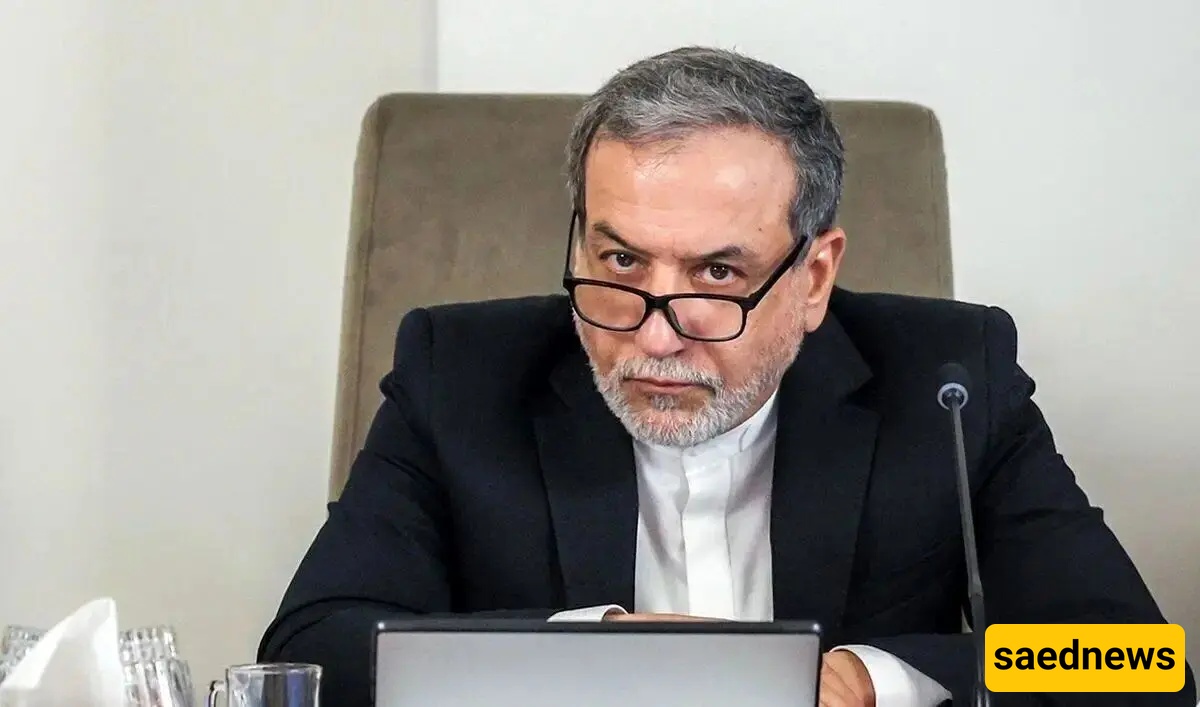SAEDNEWS: In a sharply worded statement, Iran’s foreign minister Abbas Araghchi has condemned recent threats and insults from former U.S. President Donald Trump directed at Ayatollah Ali Khamenei, calling them “unacceptable” and a provocation to millions of Iranians.

According to Saed News, Iran’s Foreign Minister Seyed Abbas Araghchi has forcefully responded to what he described as “blatant and offensive” remarks made by former U.S. President Donald Trump about Supreme Leader Ayatollah Ali Khamenei, warning that such rhetoric undermines any path to diplomacy and inflames public opinion in Iran.
In comments reported by Tasnīm News Agency, Araghchi stated: “If Mr. Trump truly seeks an agreement, he must abandon the disrespectful and unacceptable language he has used regarding the Supreme Leader. Such provocations wound the hearts of millions of faithful followers.”

Araghchi, a seasoned diplomat and former nuclear negotiator, drew on cultural symbolism to underscore Iran’s resilience: “The complexity and strength of the Iranian people are woven into our finest carpets—each strand shaped by hours of patience and meticulous craftsmanship. Yet our political logic is simple: we know what we have, we value our independence, and we will never allow others to dictate our destiny.”
The comments came in the wake of Trump’s latest statements, which were seen by Tehran as both insulting and threatening. Without specifying the exact remarks, Araghchi made it clear that Iran would respond decisively if provoked further.
“The great and powerful people of Iran have shown the world that when it comes to defending themselves, even Israel had to seek refuge in its ‘daddy’ to avoid annihilation by our missiles,” he said, referring to the recent escalation in military posturing in the region. “Threats and insults do not intimidate us. Should delusions turn into miscalculations, Iran will not hesitate to reveal its true capabilities—putting an end to any illusions about our power.”
In a parting note, Araghchi emphasized a diplomatic principle: “Goodwill begets goodwill, and respect begets respect.”
The remarks reflect a broader strategy by Tehran to push back against what it sees as a return to maximum pressure rhetoric from Trump, who remains a major political figure in the U.S. and has not ruled out another presidential run.
Tensions between the two countries remain high, particularly over Iran’s expanding nuclear program, regional conflicts, and the future of the Joint Comprehensive Plan of Action (JCPOA). Analysts note that inflammatory personal attacks on Iran’s highest authority are especially provocative, given the symbolic and constitutional role of the Supreme Leader.
With the U.S. heading into an election year and Iran still reeling from regional conflict and internal economic strain, Araghchi’s message may be aimed as much at a domestic audience as at Washington—drawing red lines that signal both resistance and conditional openness to negotiation.

